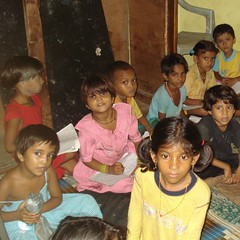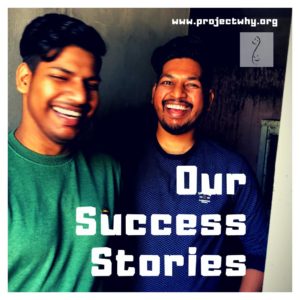 A dear friend commented on my recent post way to go India. He wrote: I read with joy your latest blog post. 2 messages in particular struck a chord: One, how Project Why stood firm against institutional considerations and put the needs of the children as top priority. Having worked in the Education Ministry of Singapore and probably carrying on a career making education policies in future, I realized this is a dilemma most middle-tier leader face. As a young intern and observing how the current leaders go about formulating policies and making decisions, I was convinced the paramount factor is what’s best for the children – and their teachers, without whom education is impossible too, and any other administrative glitches can be ironed out. Two, the motivation and vibrancy of youth. The older I grow, the more I feel I lose this tendency to initiate things, and more importantly sustain them.
A dear friend commented on my recent post way to go India. He wrote: I read with joy your latest blog post. 2 messages in particular struck a chord: One, how Project Why stood firm against institutional considerations and put the needs of the children as top priority. Having worked in the Education Ministry of Singapore and probably carrying on a career making education policies in future, I realized this is a dilemma most middle-tier leader face. As a young intern and observing how the current leaders go about formulating policies and making decisions, I was convinced the paramount factor is what’s best for the children – and their teachers, without whom education is impossible too, and any other administrative glitches can be ironed out. Two, the motivation and vibrancy of youth. The older I grow, the more I feel I lose this tendency to initiate things, and more importantly sustain them.
I sat a long time mulling these words and their relevance particularly in a week where we celebrate 61 years of Independence and the first individual Olympic gold ever won. And instead of elation and euphoria I am filled with despondency and sadness. Is one medal in a land of a billion and counting, reason to celebrate. I cannot tell. What stares at me are the eyes of millions of potential medal winners who will never be able to do so because we have collectively failed them in every which way possible.
A tiny and unobtrusive news item must passed unnoticed by many. The Right to Education Bill was not taken up by Parliament but sent to another committee for review as vote bank politics is far more important than sending 200 million children to school. It is in 2002 that the children of India got the fundamental Right to Education. A bill was drafted in 2005 and still waits to be passed or killed! A sad state of affairs when Bills on salary raises for members of parliament are passed in a jiffy. The writing is on the wall. No one is truly concerned about the plight of the children of India and with every delay a large number of children miss their chance to be educated. It is true that the Bill threatens many bastions and social divides as one of its clause is reservation of 25% of seats in the best schools for kids from across the street and hence everyone is up in arms: how can the drivers or washer man’s kid study with mine! In all this the children are forgotten and cast aside.
The lofty idea that education would promote equality and social integration across class, caste and gender is not something we are comfortable with. True it makes great conversations pieces as well as excellent copy for campaigns and ads but when it comes too close it is simply rejected. It was way back in 1966 that the Kothari Commission had mooted the idea of a common school and though many feel that this would be an answer to education for all, it has remain a dead letter for almost half a century. The CSS (common school system) is not something we truly want.
Generations of children have been sacrificed to the alters of greed, vote bank policies, dubious lobbies are more of the same and in those lost years the divide between the rich and the poor has grown unabashedly in all walks of life, even schools who now look more like spas than places of learning. No one is truly concerned about what is best for children or should I say best for all children. The reason being that children do not have a voice and are not a vote bank! Debates will continue, it is politically correct to do so. What makes me seethe with anger is that political parties are not able to bury their differences and come together to pass such a Bill, and unless they do so no Bill that aims at inclusiveness can ever see the light of day.
In this 61st year of Independence and in the euphoria of a gold medal can one hope that things will change. I doubt it unless each one of us, particularly those who were lucky to be born on the right side of the fence, come out of our torpor and do something before we lose our ability and motivation to do so.
Will be able to do so? Only time will tell.




